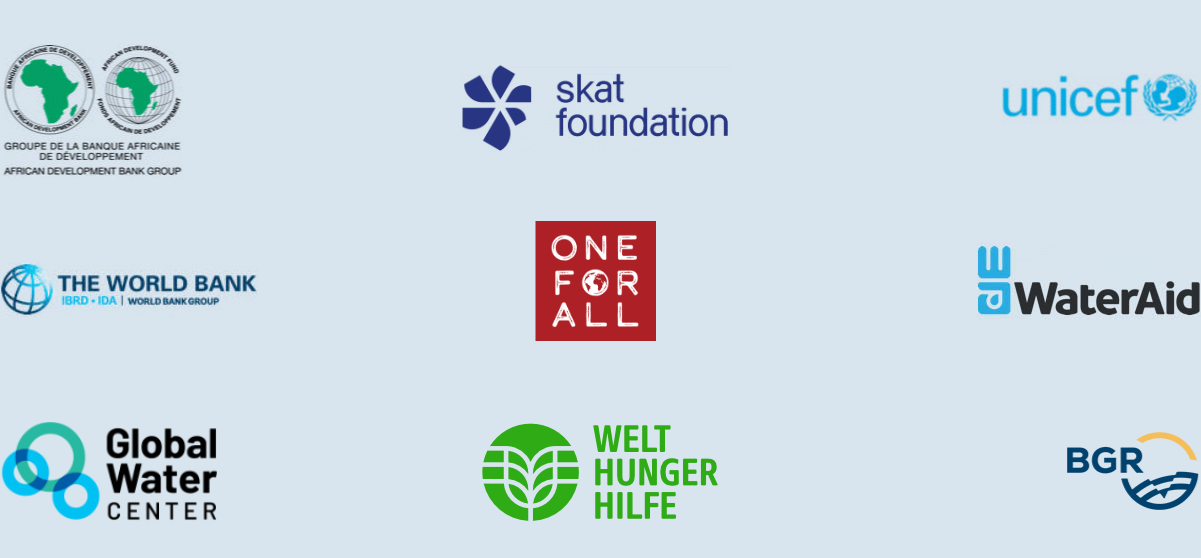Find out how to collaborate with RWSN
New Book: Self-supply - Filling the gaps in public water supply provision

A self-financed household water supply in Zambia
© 2021 R. Haanen, Jacana, Zambia / RCO.design • Practical Action Publishing Ltd.
Project starts: 2021
Project finished:
Collaborators & Partners: Dr Sally Sutton (Ind), Dr John Butterworth (IRC), Practical Action Publishing
Funder: IRC, SWL Consultants
Project Description
"While governments and development partners focus on improving community and utility-managed water supplies to ensure access for all, hundreds of millions of people are taking actions to supply their own water. In the WASH sector household investment in construction and improvement of facilities is widely employed in sanitation but in water similar efforts are ignored. Recognition of the contribution of self-supply towards universal access to water and its full potential, is hampered by a lack of data, analysis and guidance.
This well-reasoned source book highlights the magnitude of the contribution of self-supply to urban and rural water provision world-wide, and the gains that are possible when governments recognise and support household-led supply development and up-grading. With limited public finances in low- (and many middle-) income countries, self-supply can fill gaps in public provision, especially amongst low-density rural populations. The book focuses on sub-Saharan Africa as the region with the greatest predicted shortfall in achieving the 2030 Sustainable Development Goal for water.
Household supplies can be created, or accelerated to basic or safely managed levels, through approaches that build on the investment and actions of families, with the availability of technology options and cost-effective support from the private and public sectors. The role of self-supply needs greater recognition and a change in mindset of governments, development partners and practitioners if water services are to be extended to all and no-one is to be left behind."
Sally Sutton has worked in rural water supply and sanitation in the Middle East and Africa for four decades. Her experiences of the parallel efforts of governments/ development partners and of households to improve water supplies were the motivation for this book.
John Butterworth is the lead of the Global Hub at IRC, a think tank focused on improving water, sanitation and hygiene services.
Case study examples are contributed by leading practitioners and observers in sub-Saharan Africa and beyond.
Perspectives
"There are probably very few countries in which public water supply can reach every citizen, every household or every community. In many cases this is because of remote locations, but it is also the case in lower-income countries that limited government budgets render the progressive realisation of safe and sustainable services for all painfully slow. As a consequence, individuals, households and communities take their own initiatives – and invest their own resources – to gain access to water, and to improve the standard of that access. Such self-supply initiatives have been known about for many decades, especially as a result of the work of Dr Sally Sutton, the main author of this book. Now Sally and Dr John Butterworth have put pen to paper in this comprehensive account of the extent and nature of self-supply. The authors demonstrate the potential to incorporate self-supply into national strategies which recognise the need for multiple solutions to the challenges of water supply and its financing and management. Self-supply is an important component of both rural and urban water services, and this book is the resource for understanding its place. I strongly commend the book to all who are working in or interested in the water sectors of nations."
- Prof. Richard Carter, WASH specialist
“Self-supply has long been overlooked because it is largely unmapped, unmonitored and unregulated, and therefore invisible to policy-makers and decision-takers. This wonderful new book shows what they are missing by providing an accessible but comprehensive overview of self-supply in its many forms and contexts, from the lowest income countries to the highest. It puts people at the centre of the challenge to achieve universal water access and is a celebration of ingenuity and resilience – and highlights that household investment and remittances can play a vital role in plugging the investment gap in rural water infrastructure. This book is destined to become a classic reference that all rural water supply professionals should become familiar with.”
- Sean Furey, Director, Rural Water Supply Network (RWSN)
More Information
» Practical Action - Self-Supply: Filling the gaps in public water supply provision
The book will be available to buy in print or free to download from 15 January 2021
Find out more about Self-supply, a term coined by RWSN and Sally Sutton nearly 20 years ago







 Google Übersetzer
Google Übersetzer